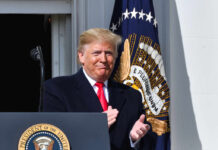
As Republicans debate whether to keep the U.S. cash faucet flowing to Ukraine, Sen. Lindsey Graham (R-SC) continues to advocate for more military aid to the Eastern European nation. He recently declared it “imperative” for America to continue supporting Ukraine’s military, saying, “The Ukrainians will be successful if we and other allies continue our support.”
U.S. taxpayers have already funneled billions into Ukraine. While Graham touts this as a “great return on investment,” it’s worth scrutinizing whether this is indeed the case. Is this truly about America’s national security, or are we heading directly into another endless foreign engagement that could quickly threaten nuclear war?
Maui is missing well over a thousand children, and this war-monger is concerned about a war that doesn't affect Americans, except that it is costing us billions and billions of dollars.
$700 for Maui.
🇺🇦 Over 400,000 dead Ukrainians 🇺🇦
Lindsey Graham sponsors losers and death. https://t.co/Rwk8xPgXqK
— Voting For (@Trump_Lake2024) September 1, 2023
Graham’s recent trip to Ukraine didn’t merely focus on military aid. He also waded into Ukraine’s internal affairs by suggesting President Volodymyr Zelenskyy hold elections despite his threats to postpone polling. The senator believes holding elections in a war-torn country would dispel perceptions of Ukraine as corrupt. However, Ukrainian officials are not enthusiastic about the idea. Zelenskyy noted the difficulties, saying, “I will not take money from weapons and allocate it to elections.”
When officials in Ukraine say it’s “impossible to hold elections” due to “problems of security,” it’s a wake-up call. If a nation can’t secure a polling booth, can we trust it to use sophisticated American military hardware efficiently?
While Graham assures us that “No American troops have been requested or needed,” one wonders if this is a slippery slope. Will there be a point where boots on the ground become a ‘necessary’ step in this ongoing saga? And if the Russian invasion “crumbles,” as Graham puts it, will American assistance cease? Historical examples from Afghanistan to Iraq suggest that’s unlikely.
Foreign military support needs to be clear-eyed, focused, and with a predefined goal — something lacking in the rhetoric coming from Graham. “The outcome of this is enormously important to our national security because China and many others are watching closely,” Graham asserts. Yet, it’s essential to differentiate between strategic foreign policy and what can easily become an unwieldy international entanglement.
At a time when the U.S. has its own domestic challenges — from border security to persistent inflation — it’s crucial to consider whether we can afford another “imperative” mission that could evolve into a never-ending commitment.
































